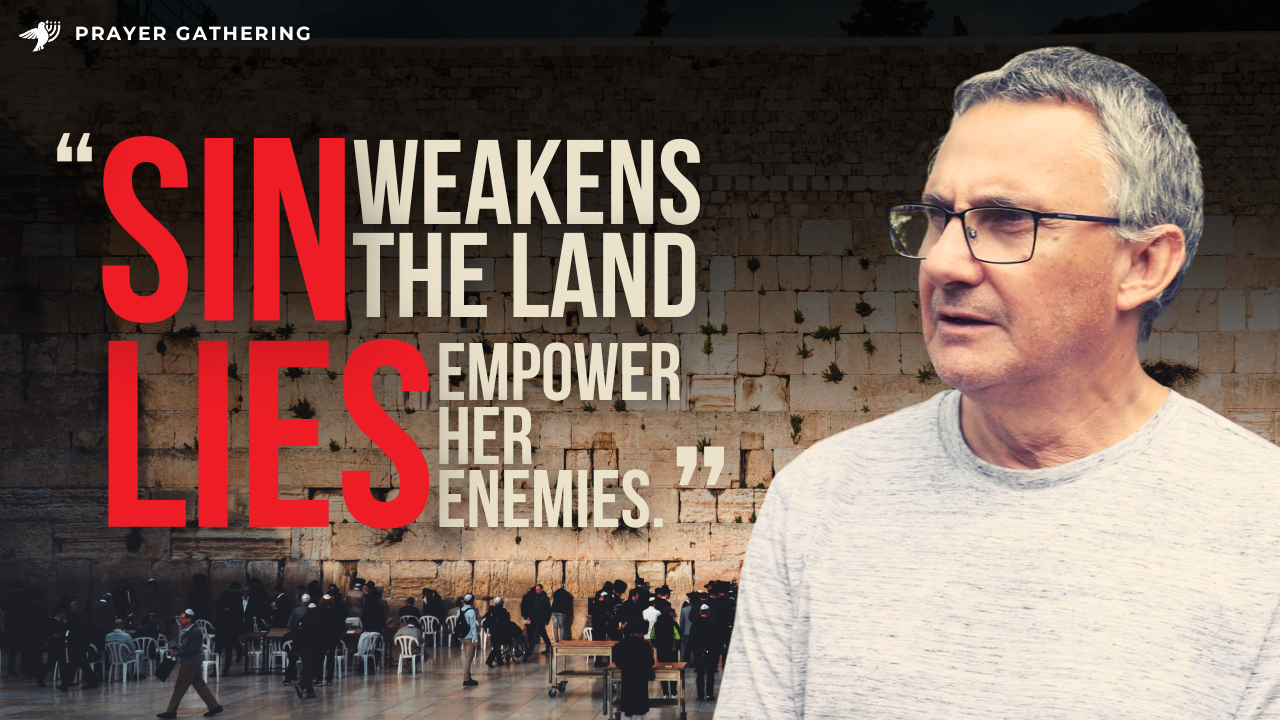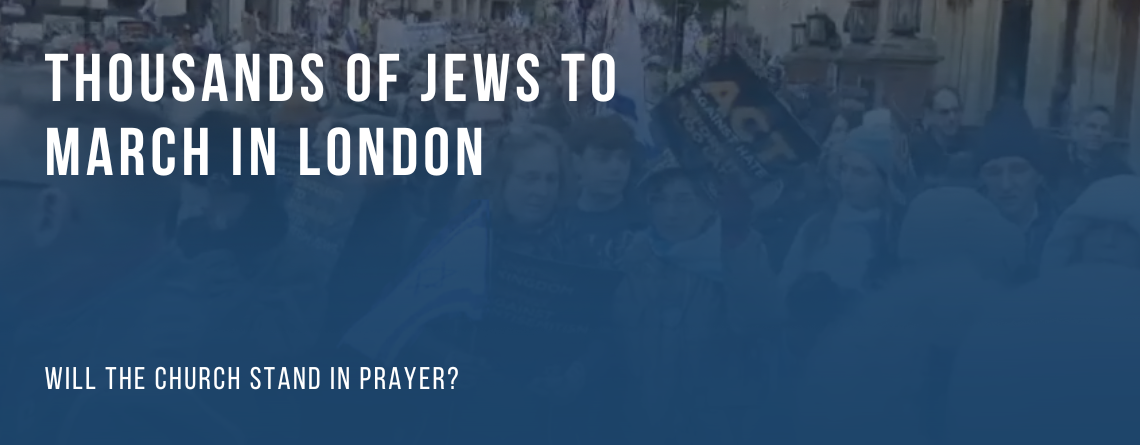Praying for Israel: Knowledge or the Spirit?
Recently, I have to confess, I’ve been battling to know exactly what to pray for regarding Israel. That might surprise you. After all, as someone deeply involved in “the Israel world,” I should know everything happening on the ground. And, to a degree, I do have good insight. I read the reports, hear the updates, and keep close watch on events. But that’s precisely the problem. Knowledge alone doesn’t enable us to pray effectively. Information is useful, especially when “fighting Israel’s corner” in conversations, but it doesn’t automatically align our hearts with the Father’s will. However, biblical knowledge, when joined with genuine faith, is a different matter. When our understanding is shaped by God’s Word, and our prayers are fuelled by trust in His promises, knowledge becomes a weapon in the Spirit’s hand. The danger is when we stop there, leaning on headlines and analysis, and fail to let the Spirit lead us into praying in accordance with God’s will. That’s when our prayers risk sounding wise to us, but fall short of heaven’s purpose.
Our main goal in prayer must be what our Saviour, Jesus Christ, modelled in Gethsemane before the greatest act in history: “Not My will, but Yours, be done.” (Luke 22:42) Jesus knew the prophecies about His sacrifice. From a human perspective, He fully understood what was coming. Yet He didn’t pray according to His own perspective, He prayed in full surrender to the Father’s plan. So why is it that we, who claim to imitate Christ, so often find the flesh clawing to pray according to our own reasoning? Why does the old man in us so desperately want to tell God what we think is best? Is that not the way of Cain? Offering the fruit of our own effort and preference, instead of the obedience He requires?
A Conversation That Stopped Me
Recently, in a discussion with our PFI Director, Paul Smith, he said something that caught me off guard: “I had to apologise to the Lord for praying that.” In other words, he had realised after the fact that his prayer had been shaped by his own desires rather than God’s purposes. That struck me deeply. The flesh doesn’t stop at the church door, and it certainly doesn’t sit quietly during our prayer time, it subtly injects our wants, our timelines, our comfort, and dresses them up as “spiritual concern.” How often do we give God a sanctified version of our will and call it intercession?
An Example from Judea and Samaria
During a recent prayer gathering (which you can watch here), the speaker urged us to pray specifically for Judea and Samaria, what much of the world now calls the “West Bank,” but what the Bible calls the very heartland of Israel. In Scripture, Judea refers to the southern hill country, including Jerusalem, Bethlehem, and Hebron; Samaria lies to the north, including ancient sites like Shiloh, Bethel, and Shechem. These locations are the stage upon which much of biblical history unfolded and the very land God promised to the descendants of Abraham, Isaac, and Jacob. When the prophets, including Zechariah, speak of the Jewish people returning to the land (see Zech. 8:3, 7–8; Jer. 31:8–10), the setting is not Tel Aviv or the coastal plain, but the covenant heartland, Judea and Samaria.
The speaker’s point was striking: prophecy points to Jews making aliyah, yes, to Israel generally, but more importantly, to these specific regions. We prayed into this. Just two days later, on 13th August, Israel’s Finance Minister Bezalel Smotrich announced plans to approve tenders for over 3,000 housing units in the E1 area, strategically located between Jerusalem and Ma’ale Adumim, within Judea and Samaria. He called it a move that “buries the idea of a Palestinian state.” From a prophetic standpoint, it’s remarkable: the government had just taken a tangible step that could create homes for Jewish families, potentially even new immigrants, in the very territory the prophets said they would return to. Of course, the “international community” condemned it. That’s nothing new; almost every step Israel takes toward securing its land draws global outrage. But for those watching through the lens of Scripture, this looked less like a political manoeuvre and more like another stone being laid in God’s unfolding plan.
Yes, Pray for the Peace of Jerusalem
I want to be clear, I am not saying it’s wrong to pray for the peace of Jerusalem. In fact, Scripture commands it: “Pray for the peace of Jerusalem: May they prosper who love you.” (Psalm 122:6) But biblical shalom is far more than the absence of conflict. It is the wholeness, security, and blessing that will only be fully realised when Messiah reigns from His throne in Jerusalem. To pray for Jerusalem’s peace is to pray for God’s kingdom to come, His will to be done, and His Son to be revealed to Israel and the nations. It is to pray for her enemies to be stilled, for her people to turn to the Lord, and for the covenant promises of God to reach their fulfilment. It is not the flesh’s sentimental wish for everyone to “just get along.” It is a cry for the righteous rule of Christ to break in, something the flesh will never truly desire, because it dethrones self.
Praying His Will, Not Ours
Here’s the uncomfortable truth: I have often prayed for peace in Israel. Don’t we all? But will Israel see true peace in this present age? Scripture tells us plainly that the days before Christ’s return will be marked by deception, famine, nations rising against Israel, and tribulation. God is allowing these events to happen because they are part of the pathway to the return of the King. To pray otherwise, if we’re honest, is to pray against His plan in order to soothe our own distress.
Just as Jesus in the Garden prayed according to what the Father had foretold, so must we. Knowledge of current events is valuable, but in an age of deception, it can lead us astray if it is not anchored to the truth of Scripture and the leading of the Spirit. The flesh loves the illusion of control, arming itself with headlines and strategies but the Spirit calls us to surrender, to pray for what God has already purposed, even when it means walking through days of shaking. True intercession is not the offering of our opinion to heaven; it is the echoing of heaven’s decree into the earth.






